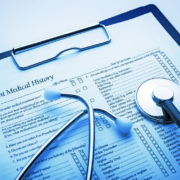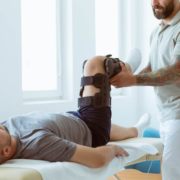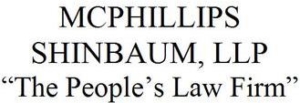Can Returning to Work Too Soon Hurt Your Personal Injury Claim?
Returning to work too soon after sustaining a personal injury can have significant implications on your personal injury claim. While it may seem necessary to resume work as soon as possible for financial reasons, doing so too early could potentially damage your claim and limit your chances of receiving fair compensation for your injuries. This seems unfair—people often have to go back to work to provide for their families, but in doing so, they prevent themselves from receiving the full and fair compensation they deserve.
It’s important to run important decisions like this one by your personal injury attorney as soon as possible. At McPhillips Shinbaum, attorney Aaron Luck helps injured clients pursue the compensation they are owed. Set up your consultation with attorney Aaron Luck now by calling us at 334-262-1911.
How Your Work Status Affects Your Personal Injury Claim
Your work status plays a crucial role in your personal injury claim, as it directly impacts the amount of compensation you receive and your efforts to mitigate your injuries. When determining compensation for your injuries, insurance companies and courts consider factors such as lost wages, diminished earning capacity, and the impact of the injury on your ability to perform job-related tasks. Your work status, including whether you are able to return to work, the extent of your work restrictions, and any accommodations needed, plays a big role in the compensation you receive. If you push yourself to return to work early—even if doing so negatively impacts your health—the insurance company may claim that your injuries obviously aren’t as bad as reported.
Dangers of Returning to Work Early
Returning to work earlier than recommended after sustaining a personal injury can pose several risks to your claim:
- Underestimation of damages: By returning to work before you fully recover from your injuries, you may underestimate the severity of your condition and the long-term impact it may have on your ability to work and earn income. This could result in undervaluing your claim and receiving inadequate compensation for your losses. You may, for example, be able to push through your work for a few weeks—only to collapse four weeks in and be permanently out of the workforce.
- Compromised medical treatment: Returning to work too soon may interfere with your medical treatment and rehabilitation process. Focusing on work responsibilities instead of prioritizing your recovery could delay or hinder your progress, leading to prolonged pain and suffering and potentially exacerbating your injuries. Remember, part of your responsibility in a personal injury claim is to put appropriate effort into your recovery.
- Limited documentation: Continuing to work while still experiencing pain or limitations may result in insufficient documentation of your injuries and their impact on your ability to work. It’s likely that the other party will assume your injuries are less severe than reported.
Going Back to Work Could Endanger Your Claim
Returning to work too early could also jeopardize your claim by providing ammunition for the defense to dispute the validity of your claim. Insurance companies will point at your past descriptions of your injuries, and then ask how those reports can be true if you’re back to work already. Not only could your claim lose value, but it could be lost entirely if the insurance company is convincing enough.
How to Protect Your Case
Protecting your health and your personal injury claim should be two of your top priorities during this process. Luckily, the two go hand-in-hand. First, follow the treatment and care recommendations given by your doctor. This means not returning to work until you are given the all-clear, doing all recommended physical therapy exercises, and taking medication as prescribed. Second, document your progress and setbacks. If your injury prevents you from taking care of your home and family, following your care instructions, or otherwise living your daily life, make note of these limitations.
Explore Your Legal Options with McPhillips Shinbaum
When you’re ready to move forward with your personal injury claim, attorney Aaron Luck is here to help you fight for the compensation you deserve. Let’s sit down and talk about your next steps. Just call us at 334-262-1911 or send us a message online to get started.


















